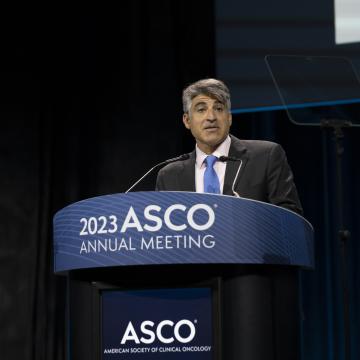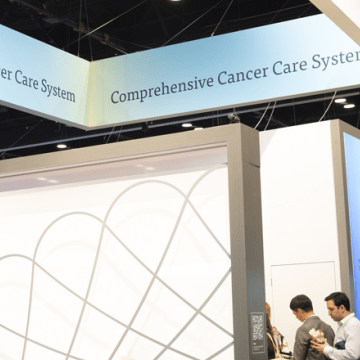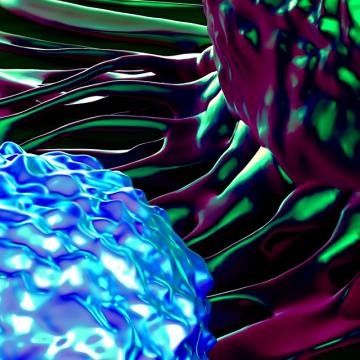
Srividya Swaminathan Lab
A large number of lymphoid neoplasms are currently being treated with conventional chemotherapies that are toxic for normal cells. Of note, healthy lymphocytes express the normal counterparts of oncoproteins, making direct targeting of oncogenes difficult. Therefore, identification of therapies that can specifically target cancer cells is required. The immune system is a natural defense mechanism against cancers that can be activated to specifically kill malignant cells.
Development of targeted immunotherapy against lymphoid malignancies requires distinguishing normal and malignant lymphocytes in two respects: (1) Cell-intrinsic signaling, that includes surface molecules and intracellular signaling, and (2) Regulation of immune microenvironment. Srividya Swaminathan’s laboratory will study these aspects by comparing both cell-intrinsic processes, and the spatial and temporal distribution of the immune system during normal and malignant lymphopoiesis, using approaches including mass cytometry (CyTOF), CIBERSORT and humanized mouse models. This knowledge will be applied for the development of cell-based and other immunotherapies. Sponsors for the Swaminathan Lab research include the NCI/NIH, LLS, ASH, St. Baldrick's Foundation, Leukemia Research Foundation, Prevent Cancer Foundation, and Concern Foundation.
An Associate Professor in the Department of Systems Biology, Srividya Swaminathan's research focuses on immune profiling of normal and malignant lymphopoiesis, molecular mechanisms of immune modulation by oncogenes, development of cell-based and non-cell-based immunotherapies against lymphoid neoplasms.
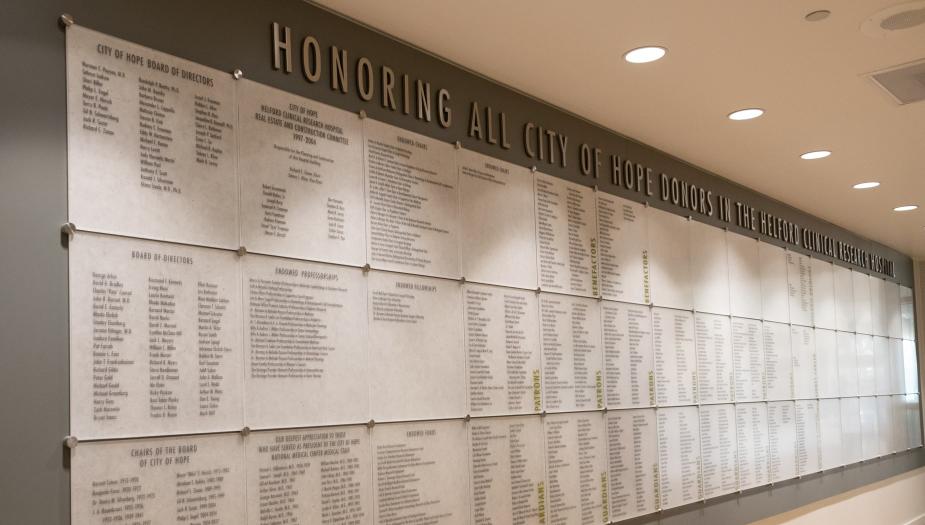
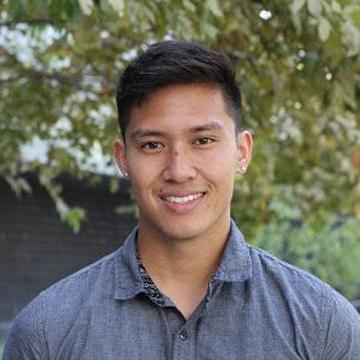

Research Focus:
- LFPRLR as a specific therapeutic target in pathogenic B-cell subsets in patients with SLE
Education:
- 2016: BS Biology at Occidental College
- 2017: MS Stem Cell Biology and Regenerative Medicine at University of Southern
California
Professional Experience
- 2017-2021: Dong Sung Lab at UCLA's AIDS Institute
- 2022-2023: Nora Heisterkamp Lab at City of Hope (DSB)
- 2023-Current: Srividya Swaminathan Lab at City of Hope (DSB)
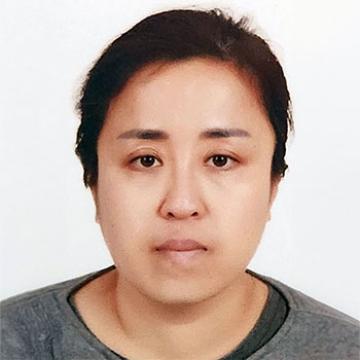

Research Focus
Demonstration of the underlying mechanisms of LFPRLR's role in pathogenic B-cell subsets and its therapeutic value
Education
- 1997: Daugu University, South Korea
- 2016: Korea Research Institute of Biotechnology and Bioscience, South Korea
Professional Experience
- 2001~2008: Korean Oriental Physiology Lab at Dongguk University, South Korea
- 2008~2010: Dr. May e Choi's Lab at Brigham and Women's Hospital/Harvard Medical School
- 2011-2023: Dr. Kim NS' Lab, Rare Disease Department, Korea Research Institute of Biotechnology and Bioscience, South Korea
- 2023-2023: Dr. Zijie Sun Lab, at City of Hope
- 2024-current: Dr. Srividya Swaminathan Lab at City of Hope
Awards
- Chairman's Award, National Science and Technology Research Association (January 27, 2022)
- Distinguished Post Award in BIEN2021, The international conference of women scientists and engineers conference on BT, IT, ET, and NT (August 19, 2021),
- Best Performance Award in the 34th anniversary of the KRIBB foundation (February 1, 2019)
- Selected for WISET Overseas Exchange Program (July 6, 2017)
- President Award in the graduate ceremony (August 19, 2016)
- Selected for UST Overseas Exchange Program (April 1, 2015)
- UST Award for graduate students who achieved outstanding research (June 14, 2013).
- KRIBB Award for the Outstanding Researcher (December 28, 2012)
Memberships
- Associate Member, American Association for Cancer Research (2015~current)
Publications
- Jun SY, Yoon JY, Yoon JY, Lee JJ, Kim JY, Kim JM, and Kim NS Age-related cholesterol and colorectal cancer progression: Validating squalene epoxidase for high-risk cases. Aging Cell, 2024, Mar 22:e14152. Doi: 10.1111/ace;/14152
- Debasish H, Jeon SJ, Yoon JY Lee JJ, Jun SY, Choi MH, Jeong BH, Sung DH, Lee DY, Kim BJ, and Kim NS, TREX1 deficiency induces ER stress-mediated neuronal cell death by disrupting Ca2+ homeostasis. Molecular Neurobiology, 2022, 59(3):1398-1418.
- Yang JO*, Choi MH*, Yoon JY, Lee JJ, Nam SO, Jun SY, Kwon HH, Yun SH, Jeon SJ, Hyeon IS, Debasish Halder, Kong JH, Lee BW, Lee JH, Kang JW, and Kim NS, Characteristics of genetic variations associated with Lennox-Gastaut syndrome in Korean Families. Frontiers in Genetics, 2021, 11: 590924.
- Jun SY*, Brown AJ, Chua NK, Yoon JY, Lee JJ, Yang JO, Jang IS, Jeon SJ, Choi TI, Kim CH, and Kim NS, Reduction of squalene epoxidase by cholesterol accumulation accelerates colorectal cancer progression and metastasis. Gastroenterology, 2021, 160: 1194-1207.
- Yang JO*, Yoon JY*, Sung DH, Yun SH, Lee JJ, Jun SY, Debasish H, Jeon SJ, Woo EJ, Seok JM, Choi JW, Jang JH, Choi JK, Kim BJ, and Kim NS, The emerging genetic diversity of hereditary spastic paraplegia in Korean patients. Genomics, 2021, 113: 4136-4148.
- Jun SY*, Yoon HR, Yoon JY, Jeon SJ, Lee JJ, Halder D, Kim JM, and Kim NS, The human TOR signaling regulator is the key indicator of liver cancer patients’ overall survival: TIPRL/LC3/CD133/CD44 as potential biomarkers for early liver cancers. Cancers, 2021, 13: 2925.
- Choi MH*, Yang JO*, Min JS, Lee JJ, Jun SY, Lee YJ, Yoon JY, Jeon SJ, Byeon IS, Kang JW, and Kim NS, A novel X-lined variant of IQSEC2 is associated with Lennox-Gastaut Syndrome and mild intellectual disability in three generations of a Korean family. Genetic testing and molecular biomarkers, 2020, 24: 54-58.
- Min JS*, Debasish Halder*, Yoon JY, Jeon SJ, Jun SY, Lee JR, LJJ, Choi MH, Jung CR, Lee DY, Kim BJ, and Kim NS, Coiled-coil domain-containing 50-V2 protein positively regulates neurite outgrowth. Scientific reports, 2020, 10: 21295
- Jeon SJ*, Ahn JH*, Halder D, Cho HS, Lim JH, Jun SY, Lee JJ, Yoon JY, Choi MH, Jung CR, Kim JM, and Kim NS, TIPRL potentiates survival of lung cancer by inducing autophagy through the eIF2a-ATF4 pathway. Cell Death and Disease 2019, 10:959-976.
- Jun SY*, Jeon SJ*, Yoon JY, Lee JJ, Yoon HR, Choi MH, Debasish H, Lee K and Kim NS, The positive correlation between TIPRL with LC3 and CD133 contributes to cancer aggressiveness: potential biomarkers for early liver cancer. Scientific Reports, 2019, 9: 16802-16812.
- Yoon JI, Lee JJ, Gu S, Jung ME, Cho HS, Lim JH, Jun SY, Ahn JH, Min JS, Choi MH, Jeon SJ, Lee YJ, Go A, Heo YJ, Jung CR, Choi G, Lee K, Jeon MK, and Kim NS, Novel indazole-based small compounds enhance TRAIL-induced apoptosis by inhibiting the MKK7-TIPRL interaction in Huh7 cells. Oncotarget 2017, 8: 112610-112622.
- Lee JH*, Cho HS*, Lee JJ, Jun SY, Ahn JH, Min JS, Yoon JY, Choi MH, Jeon SJ, Lim JH, Jung CR, Kim DS, Kim HT, Factor VM, Lee YH, Thorqeirsson SS, Kim CH, and Kim NS, Plasma glutamate carboxypeptidase is a negative regulator in liver cancer metastasis. Oncotarget Nov 29 2016 7: 79774-79786.
- Yoon JY*, Cho HS*, Lee JJ, Lee HJ, Jun SY, Lee JH, Song HH, Choi S, Saloura V, Park CG, Kim CH, Kim NS, Novel TRAIL sensitizer Taraxacum officinale F.H.Wigg enhances TRAIL-induced apoptosis in Huh7 cells. Molecular Carcinogenesis 2016 55: 387-396.
- Lee HJ*, Cho HS*, Jun SY, Lee JJ, Yoon JY, Lee JH, Song HH, Choi SH, Kim SY, Saloura V, park CG, and Kim NS, Tussilage farfara L. augments TRAIL-induced apoptosis through MKK7/JNK activation by inhibition of MKK7-TIPRL in human hepatocellular carcinoma cells. Oncology reports 2014 32: 1117-1123.
- Song IS*, Jun SY*, Na HJ, Kim HT, Jung SY, Ha GH, Park YH, Long LZ, Yu DY, Kim JM, Kim JH, Ko JH, Kim CH, and Kim NS, Inhibition of MKK7-JNK by the TOR signaling pathway regulator-like protein contributes to resistance of HCC cells to TRAIL-induced apoptosis. Gastroenterology (one of the co-first authors) 2012 143: 1341-1351.
- Ding Y* Kim JK*, Kim SI*, Na HJ, Jun SY, Lee SJ, Choi ME, TGF-b1 protects against mesangial cell apoptosis via induction of autophagy. Journal of Biological Chemistry 2010 (2010.11.26) 285: 37909-37919.
- Jun SY*, Choi YH, and Shin HM, Siegesbeckia glabrescens induces apoptosis with different pathways in human MCF-7 and MDA-MB-231 breast carcinoma cells. Oncology Reports 2006 15: 1461-1467.
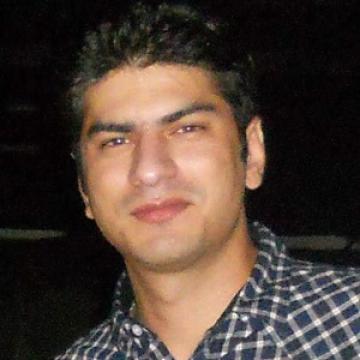

Research Focus
- Molecular mechanisms of immune surveillance in B- and T-lymphoid malignancies
- Identification of alternative treatment approaches for high-risk pediatric lymphoid malignancies
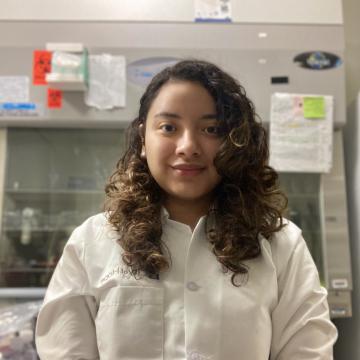

Research Focus:
- lentivirus production, CRISPR library cloning, DNA/RNA/plasmid DNA extraction/preparation
Education:
- Bachelors from UC Berkeley in molecular and cell biology (class of 2020)
Professional Experience:
- 2017-2020 Lab Technician at UC Berkeley Isacoff Lab
- 2020-2021 Research Technician at Zymo Research Corporation, Epigenetics team
- 2021-present Research Associate II/Lab Manager for Dr. Swaminathan’s lab


Research Focus:
- Delineating the mechanisms by which oncogenes suppress natural killer cells in B‐cell and T‐cell acute lymphoblastic leukemia
- Using neural stem cells as therapeutic prodrug delivery vehicles for glioma
Education:
- 2021-present, Doctor of Philosophy in Biological Sciences, Irell and Manella Graduate School of Biological Sciences, City of Hope, Duarte, CA
- 2021-present, Veterinary Residency in Laboratory Animal Medicine, Center for Comparative Medicine, City of Hope, Duarte, CA
- 2017-2021, Doctor of Veterinary Medicine, Western University of Health Sciences, Pomona, CA
- 1999-2004, Bachelor of Science in Animal Science: Pre‐Vet Option, California State Polytechnic University, Pomona, CA
Professional Experience:
- 2016-2017, Senior Research Associate; 2008-2016, Research Associate II; 2007-2008, Research Associate I; Department of Developmental and Stem Cell Biology, City of Hope National Medical Center and Beckman Research Institute, Duarte, CA
- 2006-2007, Animal Health Technician, Center for Comparative Medicine, City of Hope National Medical Center and Beckman Research Institute, Duarte, CA
- 2005-2006, Quality Inspector, Fill/Finish Department, Kelly Services, Baxter Bioscience, Los Angeles, CA
Memberships:
- American Veterinary Medical Association (AVMA)
- California Veterinary Medical Association (CVMA)
- Southern California Branch of the American Association for Laboratory Animal Science (SCB‐AALAS)
- California Laboratory Animal Medicine Society (CLAMS)
Publications:
- Kumar, A., Khani, A. T., Duault, C., Aramburo, S., Ortiz, A. S., Lee, S. J., et al.. (2023). Intrinsic suppression of type I interferon production underlies the therapeutic efficacy of IL-15-producing natural killer cells in B-cell acute lymphoblastic leukemia. Journal for ImmunoTherapy of Cancer, 11(5), e006649.
- Taghi Khani, A., Kumar, A., Sanchez Ortiz, A., Radecki, K. C., Aramburo, S., Lee, S. J., et al. (2023). Isoform-specific knockdown of long and intermediate prolactin receptors interferes with evolution of B-cell neoplasms. Communications Biology, 6(1), 295. doi: 10.1038/s42003-023-04667-8
- Haber, T., Cornejo, Y. R., Aramburo, S., Flores, L., Cao, P., Liu, A. et al. (2020). Specific targeting of ovarian tumor-associated macrophages by large, anionic nanoparticles. Proceedings of the National Academy of Sciences, 117(33), 19737-19745. doi:10.1073/pnas.1917424117
- Tiet, P., Li, J., Abidi, W., Mooney, R., Flores, L., Aramburo, S. et al. (2019). Silica Coated Paclitaxel Nanocrystals Enable Neural Stem Cell Loading For Treatment of Ovarian Cancer. Bioconjugate Chemistry, 30(5), 1415-1424. doi:10.1021/acs.bioconjchem.9b00160
- Gutova, M., Flores, L., Adhikarla, V., Tsaturyan, L., Tirughana, R., Aramburo, S. et al. (2019). Quantitative Evaluation of Intraventricular Delivery of Therapeutic Neural Stem Cells to Orthotopic Glioma. Frontiers in Oncology, 9. doi:10.3389/fonc.2019.00068
- Mooney, R., Majid, A. A., Mota, D., He, A., Aramburo, S., Flores, L. et al. (2018). Bcl-2 Overexpression Improves Survival and Efficacy of Neural Stem Cell-Mediated Enzyme Prodrug Therapy. Stem Cells International, 2018, 1-13. doi:10.1155/2018/7047496
- Barish, M. E., Herrmann, K., Tang, Y., Argalian Herculian, S., Metz, M., Aramburo, S. et al. (2017). Human Neural Stem Cell Biodistribution and Predicted Tumor Coverage by a Diffusible Therapeutic in a Mouse Glioma Model. STEM CELLS Translational Medicine, 6(6), 1522-1532. doi:10.1002/sctm.16-0397
- Ghoda, L., Metz, M., Tirughana, R., Aramburo, S., Gilchrist, M., Gutova, M. et al. (2017). STEM-32. PRECLINICAL SAFETY AND EFFICACY STUDIES OF NEURAL STEM CELL MEDIATED CARBOXYLESTERASE/IRINOTECAN ENZYME/PRODRUG GENE THERAPY FOR RECURRENT GLIOMA LEADING TO FIRST-IN-HUMAN PHASE I CLINICAL TRIAL. Neuro-Oncology, 19(suppl_6), vi232-vi233. doi:10.1093/neuonc/nox168.947
- Cao, P., Mooney, R., Tirughana, R., Abidi, W., Aramburo, S., Flores, L. et al. (2017). Intraperitoneal Administration of Neural Stem Cell–Nanoparticle Conjugates Targets Chemotherapy to Ovarian Tumors. Bioconjugate Chemistry, 28(6), 1767-1776. doi:10.1021/acs.bioconjchem.7b00237
- Cao, P., Tirughana, R., Nwokafor, U., Aramburo, S., Flores, L., Berlin, J., & Aboody, K. S. (2016). 209. Stem Cell/Nanoparticle Constructs for Targeted Ovarian Cancer Therapy. Molecular Therapy, 24, S81-S82. doi:10.1016/s1525-0016(16)33018-0
- Li, Z., Oganesyan, D., Mooney, R., Rong, X., Christensen, Matthew J., Shahmanyan, D. [et al. including Aramburo, S.] (2016). L-MYC Expression Maintains Self-Renewal and Prolongs Multipotency of Primary Human Neural Stem Cells. Stem Cell Reports, 7(3), 483-495. doi:10.1016/j.stemcr.2016.07.013
- Aboody, K., Li, Z., Oganesyan, D., Mooney, R., Christensen, M., & Shahmanyan, D. [et al. including Aramburo, S.] (2015). Stem-10 L-myc expression promotes human neural stem cell multipotency. Neuro-Oncology, 17(suppl 5), v210.2-v210. doi:10.1093/neuonc/nov234.10
- Mooney, R., Weng, Y., Tirughana-Sambandan, R., Valenzuela, V., Aramburo, S., & Garcia, E. et al. (2014). Neural stem cells improve intracranial nanoparticle retention and tumor-selective distribution. Future Oncology, 10(3), 401-415. doi:10.2217/fon.13.217
- Aboody, K., Najbauer, J., Metz, M., D'Apuzzo, M., Gutova, M., & Annala, A. [et al. including Aramburo, S.] (2013). Neural stem cell‐mediated enzyme/prodrug therapy for glioma: Preclinical studies. Science Translational Medicine, 5(184), 184ra59‐184ra59. doi:10.1126/scitranslmed.3005365
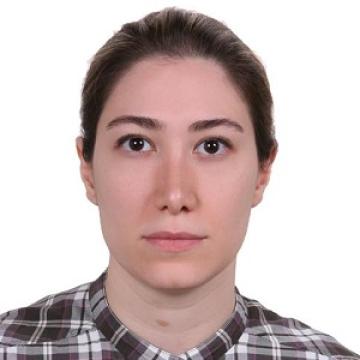

Research Focus: Tumor immunology and Immune cell-based therapy
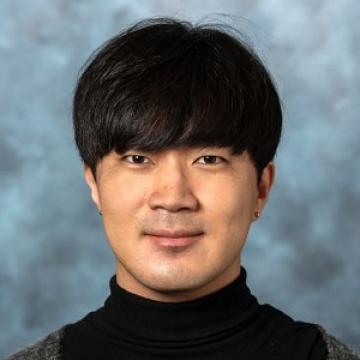

Sung June Lee received his bachelor's degree in integrative biology from University of California Berkeley. He did an internship at Cedars-Sinai where he mainly worked with an immunotherapy targeting brain tumors. In October 2019, he joined the laboratory of Srividya Swaminathan, Ph.D., at City of Hope as a research associate I. His current research is focused on searching a novel mechanism and biomarkers in MYC-driven leukemia.
We collaborate with organizations in progressing the development of new treatments in our specialized areas of research.
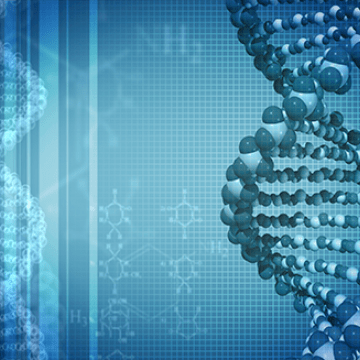
Latest Research News
34.1293409, -117.971358
Duarte, CA 91010
